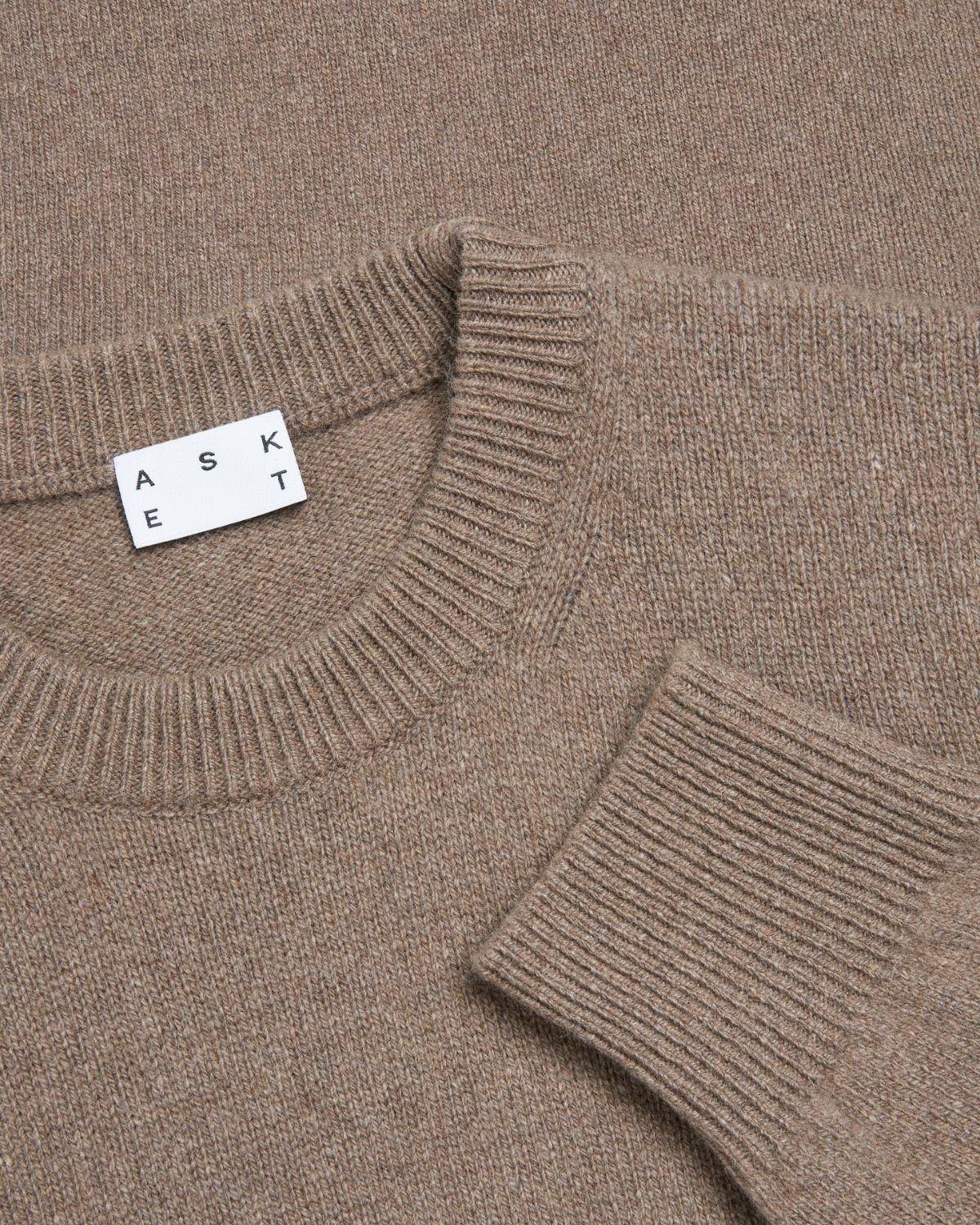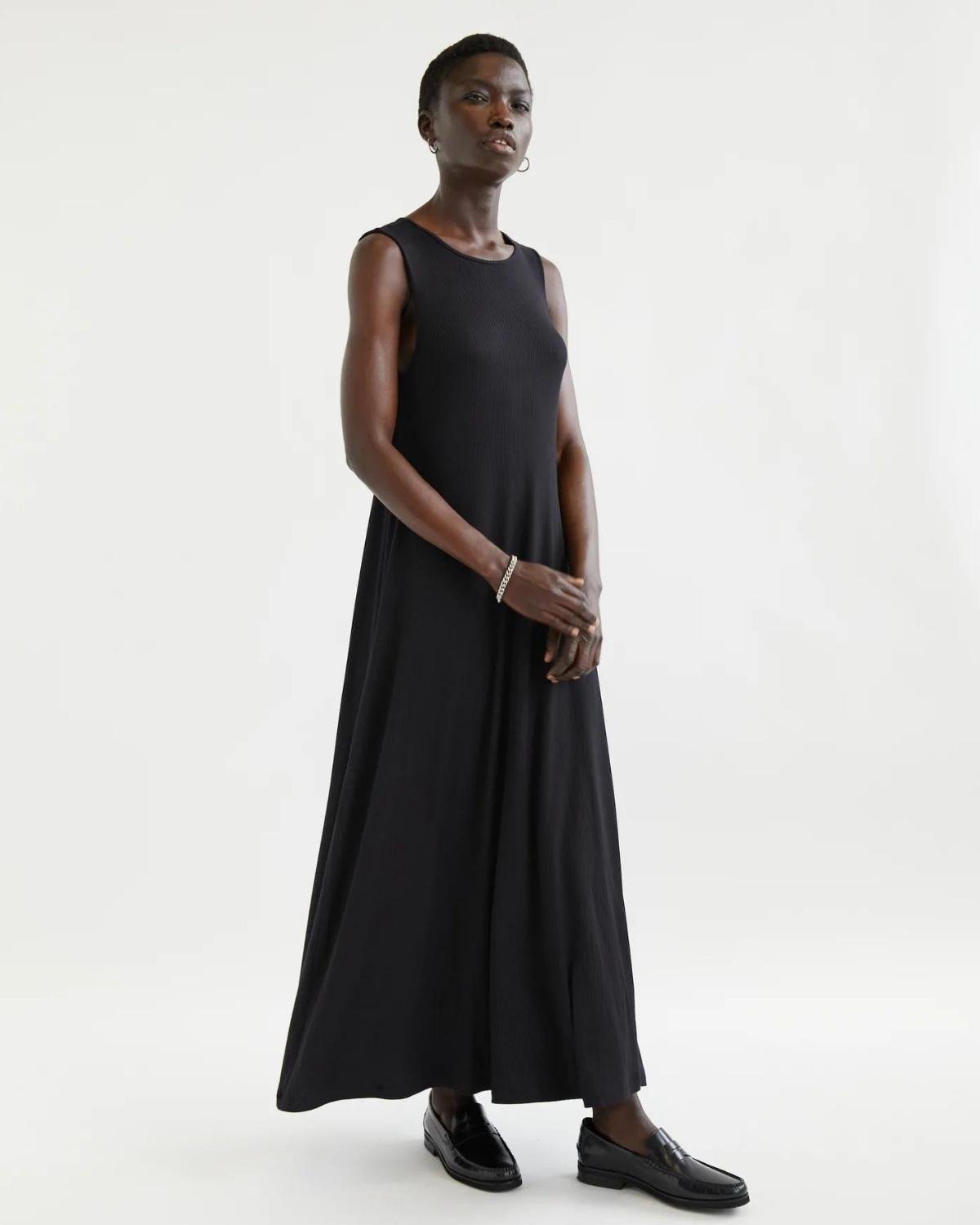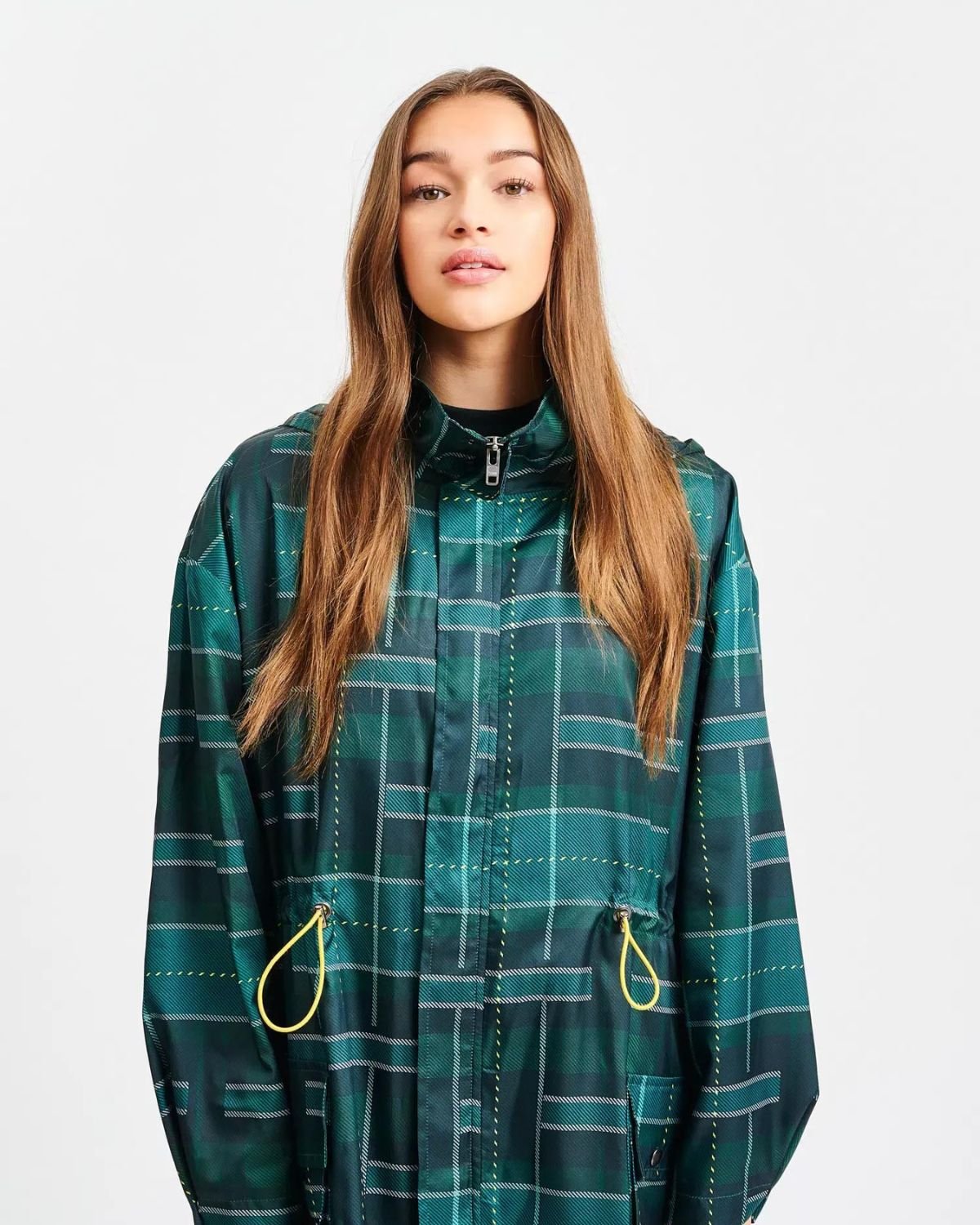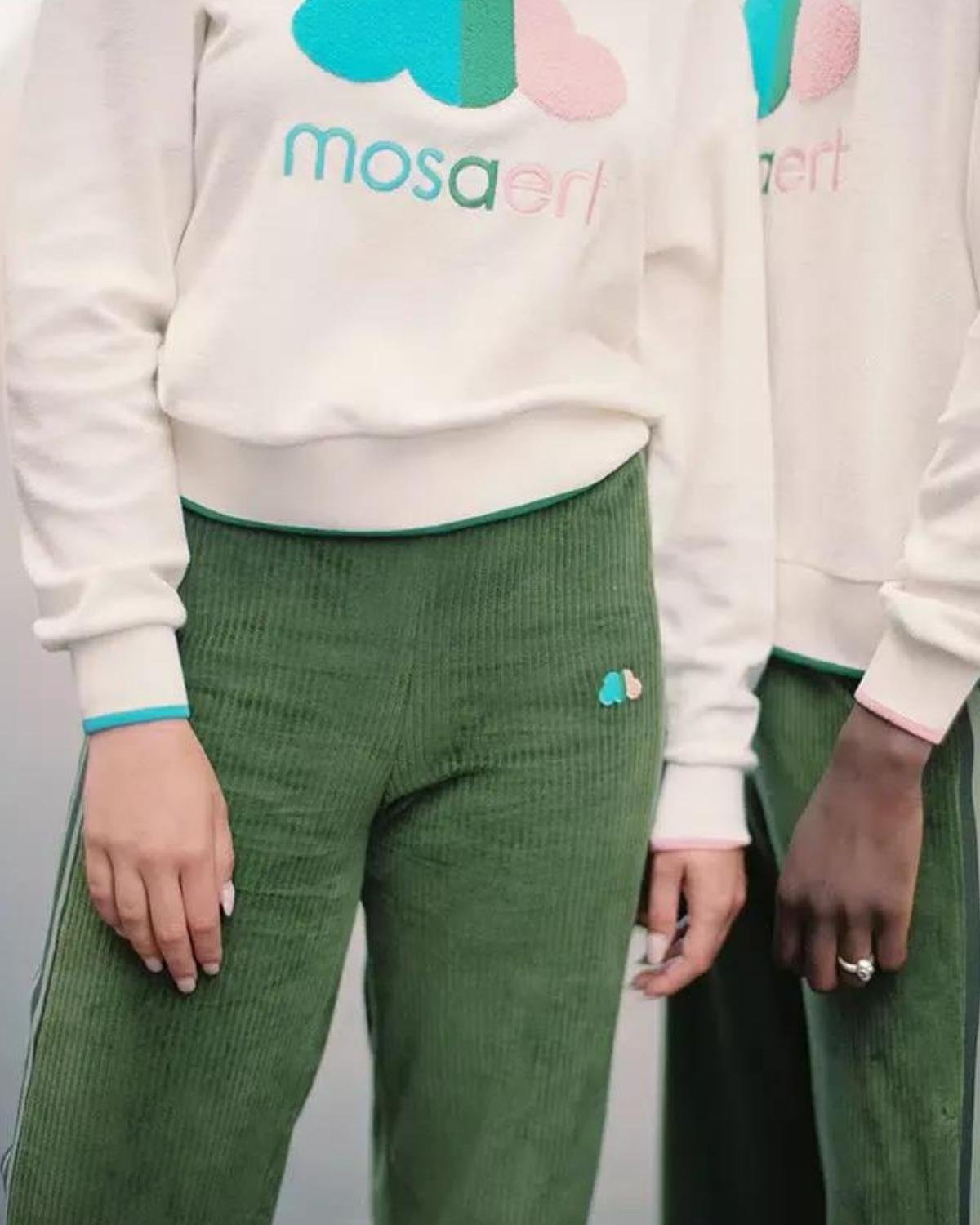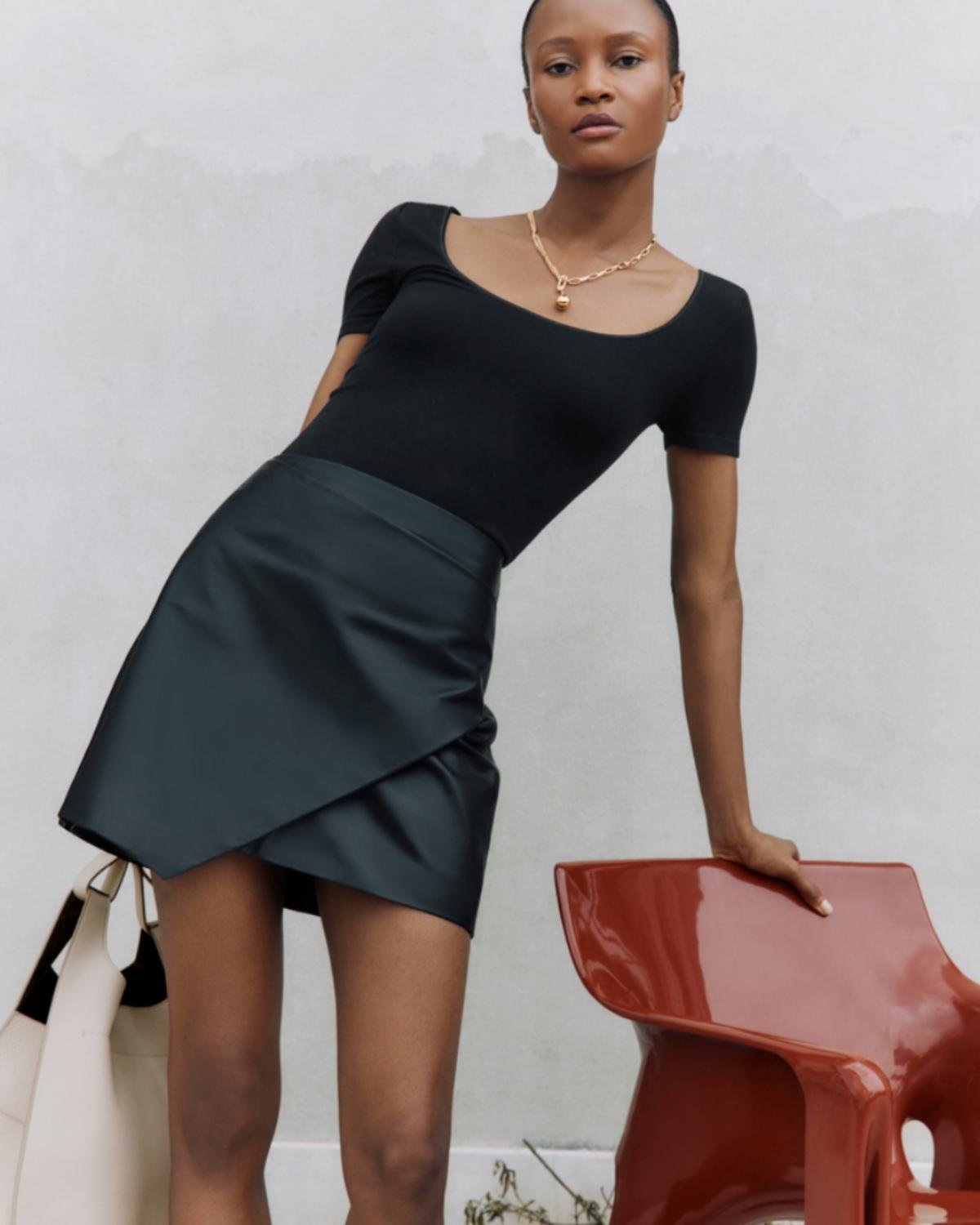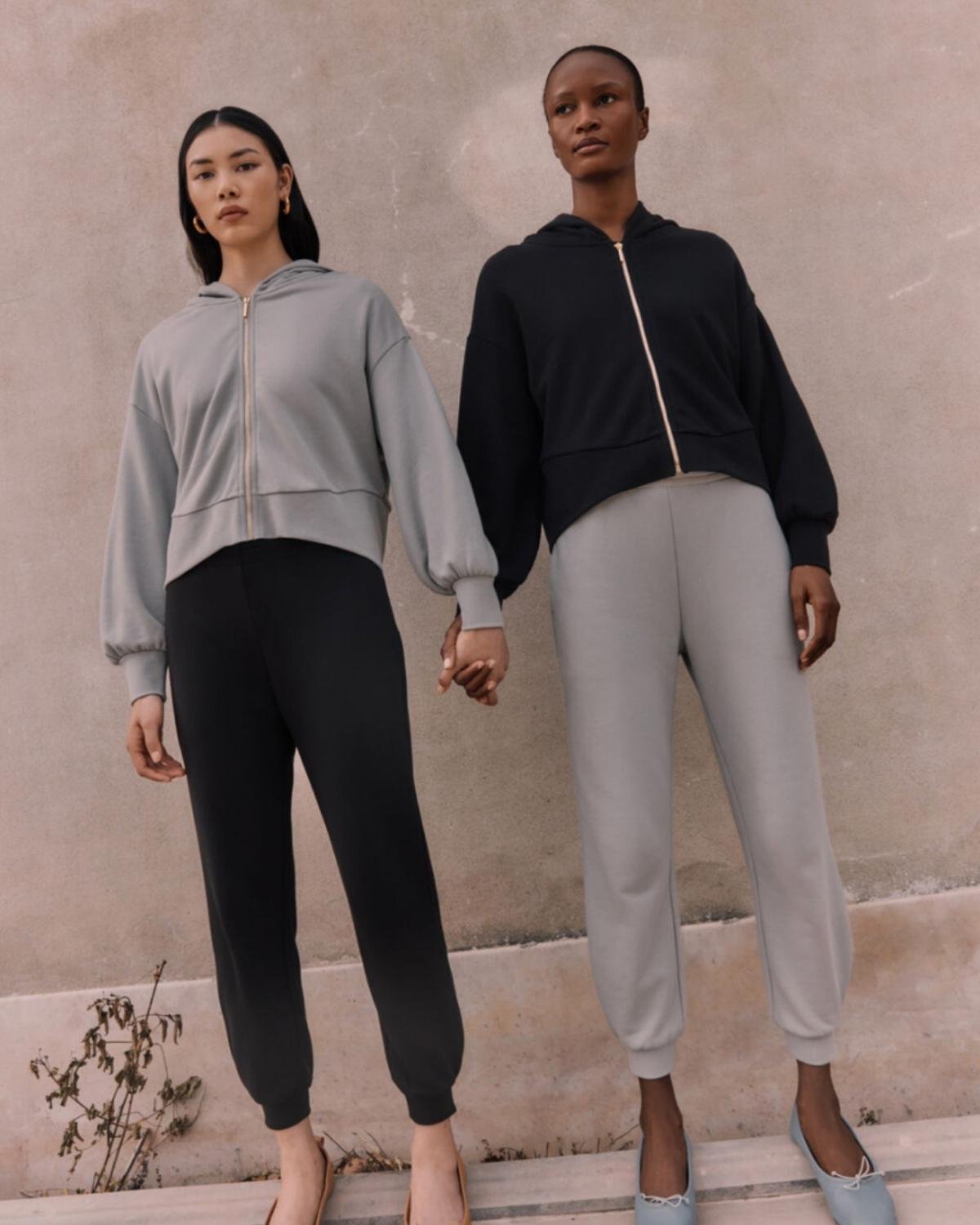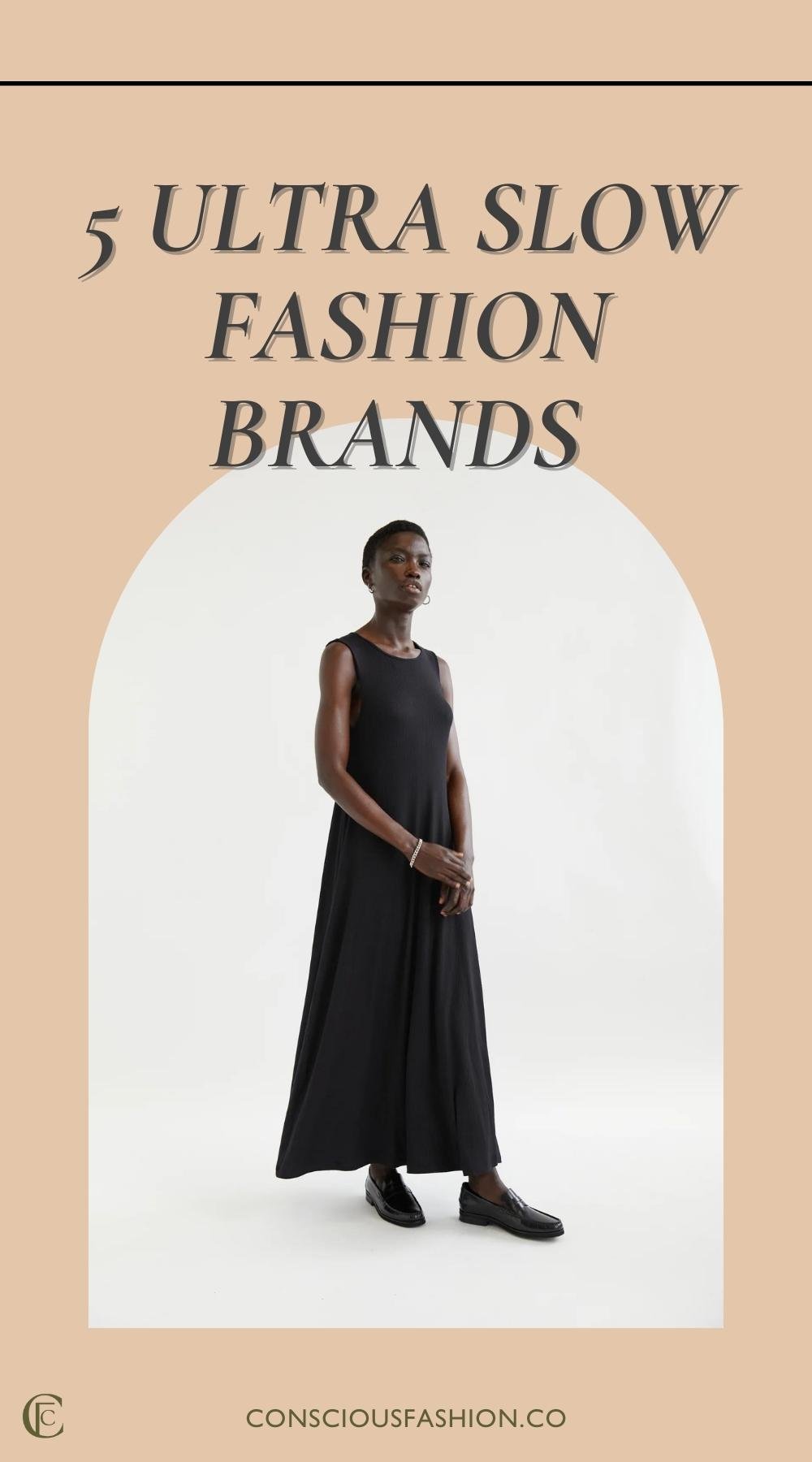5 Ultra Slow Fashion Brands Embracing Seasonless Collections
By Stella Hertantyo
You may have heard of ultra fast fashion, but what about ultra slow fashion? In this guide, meet 5 ultra slow fashion brands with seasonless collections that produce only what they can sell — or only make what's already been ordered.
To break the fashion’s relentless cycle of overproduction and overconsumption — the industry’s largest sustainability pitfalls — we need to radically slow down fashion seasons.
Why Increasing Fashion Seasons Are a Sustainability Issue
At its core, the idea of two annual fashion seasons makes sense. In some areas of the world, the summer is blisteringly hot and requires lightweight and breathable clothing, while the winters can be equally as harsh, requiring several warm layers.
But many fast fashion brands now release around 52 micro-seasons per year — and ultra-fast fashion labels like SHEIN are notorious for releasing new styles every day — making seasons synonymous with passing trends rather than functionality.
Increasing the frequency of new arrivals is another way for the industry to create the perception of urgency and the desire to overconsume. And this normalization of false seasonality only exacerbates fashion’s waste crisis.
One approach to break this cycle of overproduction, overconsumption, and waste?
A seasonless fashion future.
Most clothing can be worn across different seasons and styled in versatile ways. Designing seasonless fashion means designing high-quality clothing for durability, longevity, functionality, versatility — and beauty.
Seasonless Fashion Can Protect Garment Makers Too
When the Covid-19 pandemic started, we witnessed a global slow down in the fashion industry with many well-known fast fashion brands canceling orders from suppliers and putting the livelihoods of garment makers at risk for clothing they had already made. This is what led to the launch of Remake’s #PayUp campaign.
Part of the issue was that by the time people might be ready to buy fashion again after the global retail slowdown, these fast fashion garments would no longer be “on trend”.
Focusing on seasonless fashion instead rather than subscribing to the rapid trend cycles of the fast fashion industry can protect the livelihoods of suppliers and garment workers in a situation like a global slow down.
As Shilpa Shah, Co-Founder of ultra slow fashion brand Cuyana, explains on an episode of Crash Course Fashion podcast, “Because of the globalized fashion supply chain and the speed of fashion trends, brands place orders for garments that will be sold a year and a half from now and they don’t have any data on whether people will want that product or not.”
Building a fashion brand based on bestsellers is what allowed Cuyana to not cancel orders during the pandemic. “We knew we had to find a way to protect our suppliers, because they are the reason Cuyana exists. Because we don’t follow rapid trend cycles, we were able to shift orders from new products into bestsellers. We already knew these products are successful and would sell out,” she adds.
Here are 5 ultra slow fashion brands choosing to truly embrace the ethos of quality over quantity by replacing fleeting trends with a sense of permanence.
These brands also offer important lessons to the fashion industry about alternative sustainable fashion business models and how to run thriving businesses while producing less.
Transparency note: this guide features affiliate links, meaning we'll earn a small commission if you shop through these links, which helps us create more resources like this one. As always, we only feature brands that meet high standards for sustainability that we love, and that we think you'll love too.
“Seasonal fashion” is an unheard phrase at Swedish fashion brand, Asket. Founded in 2015, they are taking seasonless slow fashion to the next level with an offering of only a single, permanent collection of 40 functional, high-quality garments. As their “About” page reads, “We don’t design for seasons, we create for forever.” They have not removed a single garment from their collection since launching.
Instead of producing new collections, the Asket team spends time improving and perfecting their current designs. These small adjustments and improvements include improving construction or refining the dyeing process.
Asket traces every step of their garment’s journey from farm to final product and documents it all to allow their customers to make informed decisions. Many of their garments are 100% traceable. This information is printed on the label of each piece of clothing.
They have also worked out the true cost of each garment which they document on their “Impact Receipts” that accompany each garment. By revealing the true cost, they hope that people will cherish their garments longer and buy less.
And not only have they eliminated overproduction in their brand, but they are also taking steps to encourage consumers to actively reduce their consumption with their detailed care instructions, repair guides, and revival program.
Ultra slow fashion approach: One permanent capsule collection that never changes, only improves.
Conscious elements: Full traceability, true cost breakdown, impact breakdown, detailed care instructions, repair guides, revival program, sustainable materials
Materials: 100% organic cotton, 100% linen, traceable 100% Lyocell (TENCEL™), 100% traceable wool and fully recycled wool, recycled cashmere
Investment: $$$
Based in: Sweden
Buena Onda is a self-proclaimed ultra slow fashion lifestyle brand started by Palestinian entrepreneur, Farah Ragheb, in 2016.
The brand releases 3 items once a year in the summertime. Each of these annual micro-collections builds on each other as they slowly build a holistic summer wardrobe that combines functionality with fashion.
Ragheb explained to Savour Flair that their ultra-slow approach allows her to explore, rest and reflect on her designs and creative process in depth, while sourcing quality fabrics and collaborating with skilled craftspeople. “It is not only about the production, but it’s about the mindset and the lifestyle as a whole. It’s about slowing down and remembering what life is really about,” she added.
They donate 10% of their annual profits to a community cause that is identified by young people — aged 13 to 14 — who put forward their chosen cause via Buena Onda’s site. With this they hope to inspire a charitable mindset among young people.
Not only is Buena Onda pioneering a new way of fashioning, but they are sharing their learnings too through their Slow Living Academy. The Academy offers a 3-week masterclass that teaches their Simplified Retail Model™ and helps participants design a lifestyle and career that aligns with slow living. It is designed on four core principles: simplicity, innovation, connection, and giving back.
Ultra slow fashion approach: One collection per year with three items
Conscious elements: Made-to-order, low-waste, percentage of profits donated
Investment: $$$
Based in: Denmark
Remember how fashion used to only exist in two annual seasons that aligned with the heat of summer and the cold of winter? With their “less is more” approach, Ouisa is reminding us of the true function of fashion seasons with their paired-back approach to conscious capsule collections.
The New-York based woman and queer-owned brand draw inspiration from sleek, chic Parisian fashion. The brand appeals to the conscious minimalist by releasing only 12 garments per year divided into two capsule collections for the warm and cool seasons. Currently, you can browse the 6 garments in their “Core” capsule and 6 in their “Warm” capsule.
These six-piece collections feature versatile, timeless staples that encourage consumers to restyle each item and rewear them all year round.
Ultra slow fashion approach: 12 garments per year released in two 6-piece capsule collections
Conscious elements: Made-to-order, localized production, some natural and plant-based materials like cotton and TENCEL™ Modal
Investment: $$$
Based in: United States
If you browse through the websites of fast fashion brands, you will see garments disappearing and new ones appearing, weekly. When a garment leaves the site, it’s often not because there is no more stock — it’s to make room for the next best trend. Gender-neutral Belgian slow fashion brand, Mosaert, is turning this thinking on its head and removing the false sense of urgency from the consumer experience.
The brand releases one collection annually with 10-15 garments. Mosaert pre-produces these garments in limited quantities to avoid overproduction.
Their garments remain on their website until they are sold out. There is no time limit to this. As long as they have stock, you can shop it on their website. Even though it takes time, Mosaert has managed to sell out all of their collections to this day.
Another thing that stands out when browsing this brand is their commitment to price transparency. Next to each Mosaert garment you will find a diagram explaining the different costs involved in producing the item, including their operational costs, communication, and profits.
Mosaert produces exclusively in Europe to have closer relationships with their production partners and as a way to keep local textile traditions and industries alive in a world of globalized fast fashion.
Ultra slow fashion approach: One collection per year with 10-15 garments. Garments remain on the website until they sell out.
Conscious elements: Localized production, price transparency and true cost breakdown, detailed information about each factory they work with, responsible investments in an Impact Fund, low-waste production techniques, detailed care instructions, uses organic and recycled materials
Investment: $$$
Based in: Belgium
For Cuyana, overproduction makes no business sense. “We produce what we sell. And what we sell is used,” says Cuyana Co-Founder, Shilpa Shah, on an episode of the Crash Course Fashion Podcast.
Cuyana is a women-built, heritage-led company offering fewer, better collections that embody timeless design, luxury quality, and sustainability. Unlike most fashion brands, Cuyana produces in small batches, buying as close to demand as possible to prevent overproduction. They sell through 90% of the products they make, which is high for the industry average sell-through rate of 60-70%.
Their pieces are infused with the stories of the countries in which they were made and the people who made them. For example, all of their cashmere scarves are made in Scotland from Scottish cashmere, by a family-owned supplier that has been crafting cashmere for decades. And 100% of Cuyana’s suppliers are committed to a high degree of ethical conduct and environmental responsibility.
They also have an in-house resale program called Revive which they created to give well-loved Cuyana pieces a new lease on life.
Ultra slow fashion approach: Small batch production, nly make what they can sell and sell through 90% of the products they make.
Conscious elements: Artisan-made, 99% of their offering is made from sustainably-sourced materials such as recycled cashmere, care and repair guides, resale program, localized production
Investment: $$$
Based in: United States
About the Author:
Stella Hertantyo is based in Cape Town, South Africa, and is currently completing her PGDip in Sustainable Development to accompany her undergraduate in Multimedia journalism. She is a slow-living enthusiast and a lover of low-impact fashion.
She is passionate about encouraging an approach to sustainability that is inclusive, accessible, and fun as we try to figure out how to create a more sustainable and just world, together.
When Stella is not in front of her laptop doing uni work, you'll probably find her reading, writing, illustrating, or baking/cooking. A dip in the ocean, or a walk in the mountains, are the two things that bring her the most peace.



